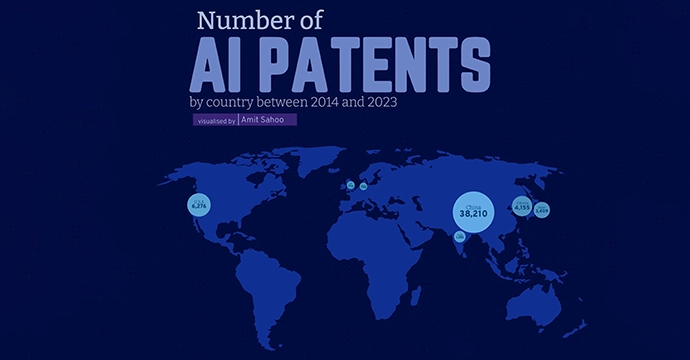China’s Unified National Market and Local Protectionism

Image: Gerd Altmann, Permission Granted (Publicdomainpictures.net)
The need to mitigate risks associated with uncertainty in the international market has forced Chinese businesses to increasingly focus on their domestic market to reach 1.4 billion potential consumers. However, protectionist practices by various municipal, county-level, and other regional jurisdictions in China favoring local businesses have presented challenges to non-local businesses. To solve the problem, the Chinese national leadership has stepped up its effort to establish a “unified national market”. A six-month campaign recently launched by national authorities is expected to produce results that will also benefit foreign businesses seeking to overcome market access barriers in China.
Trade Secrets and Criminal Punishments

Images: Mohamed Hassan, Handcuffed to a Dollar;
Linnaea Mallette, Spring Flowers Lightbulb Art (Publicdomainpictures.net)
A well-known Chinese business leader recently stated openly that her company does not hire any Chinese graduates or professionals returning from overseas to avoid potential infiltration by spies working for foreign entities. This remark has been widely criticized. While the business leader’s recruitment approach is quite extreme, her underlying concerns about potential loss of trade secrets are noteworthy. A new set of rules issued by Chinese authorities helps address these concerns by elucidating how individuals stealing trade secrets for foreign entities can be subject to severe criminal punishments.
China’s AI Patents and Compensation for Patent Infringement

Image: GraphaizeSMM Marketing, AI Patent Trends Infographics (Publicdomainpictures.net)
China stood out in the World Intellectual Property Organization’s latest report on generative artificial intelligence (“GenAI”) as, compared with other countries, China invented the largest number of GenAI technologies from 2014 to 2023. This momentum of innovation should be welcomed by Chinese leaders but should also prompt them to ponder a key question: how can they help to maintain and grow this momentum and ensure that China’s “new quality productive forces” will continue to drive the country’s long-term development? A case recently decided by the Supreme People’s Court shows that China is developing robust legal solutions to these challenges, among other tools.
Data as Property in the AI Era

Image: Gerd Altmann, Big Data (Publicdomainpictures.net)
Chinese President XI Jinping’s mid-February meeting with founders of China’s innovative companies showcases the country’s “new quality productive forces”—a term coined by the president in 2023 to emphasize the role of innovation in driving the country’s long-term development. Despite the apparent collaboration prevailing in the meeting room, behind the scenes there is fierce competition among these and other innovative companies on many fronts, including the use of data, a valuable property in the era of artificial intelligence. China is acutely aware of the need to regulate the use of data, but the challenge is how to do so properly. Incremental steps taken by the judiciary and the executive in China provide a glimpse of the country’s exploratory approach to such regulation.
Rednote and a Foreign Artist’s “Half Victory” in China’s Courts

Images: Andrea Stöckel, Vintage Art Music Cats;
Karen Arnold, Do Not Copy Stamp (Publicdomainpictures.net)
An appellate court in Beijing just delivered a victory to a Belgian artist in a five-year-long legal battle, upholding an earlier ruling of the Beijing Intellectual Property Court that his paintings have been plagiarized for years by a Chinese artist. A key step towards this victory was the Belgian artist’s success in keeping the case in the Beijing Intellectual Property Court. Artists around the world seeking to protect their copyrights should understand both the positive actions this court took in this case and the confusion that remains as a result of the court’s decision, as well as why they should leverage platforms such as Rednote to avoid ordeals like the one experienced by the Belgian artist.
China’s NEW Proactive Approach to Enforcing Foreign Judgments

Image: George Hodan, Royal Courts of Justice (Publicdomainpictures.net)
The coming into effect of China’s Foreign State Immunity Law at the beginning of 2024 has sparked concerns about how the Chinese judiciary will subject foreign states to the Chinese legal system because the law represents China’s transition from affording foreign states “absolute immunity” in Chinese courts to restricting the immunity to certain types of lawsuits. Amidst these concerns, the Supreme People’s Court just released a Guiding Case to illustrate its new, proactive approach to recognizing and enforcing foreign judgments. This approach not only evokes more optimism about the Chinese judiciary, but also increases the capacity of Chinese courts to help China revive its economy in 2025 and beyond by increasing the confidence of foreign parties in China’s willingness to recognize and enforce foreign judgments.
Law, Order, and China’s Global Leadership

Image: Gerd Altmann, One Humanity (Publicdomainpictures.net)
China’s ongoing effort to amend its “mini-criminal law” has drawn praises because the latest draft amendment reflects the authorities’ positive responses to public comments. If key provisions that have aroused widespread concerns can be ultimately improved with clarity, China will be able to gain more support from the United Nations, which just completed its fourth-cycle Universal Periodic Review of China’s human rights record. Strong support from the United Nations—through which China has increased its influence with other member states in the past decade—is crucial to China’s development of its global leadership in an increasingly contentious world.
Private Economy and China’s Credit System for Enterprises

Image: Gerd Altmann, Business People (Publicdomainpictures.net)
China is seeking public comments on a draft law aimed at promoting the development of the country’s private enterprises. The draft law requires Chinese authorities to timely update a private enterprise’s records publicized on official “credit information platforms” after the enterprise no longer has irregularities undermining its credibility. Having clean records on these platforms is important as private enterprises’ business partners and clients are increasingly relying on these platforms to assess where these enterprises stand. However, these platforms have limitations, which, if not addressed properly, could compromise the development of Chinese private enterprises and, thereby, the country’s private economy.
Arbitration and China’s Global Business

Image: Linnaea Mallette, Shipping Port (Publicdomainpictures.net)
The growing importance of global business to China makes it crucial for the country to show its commitment to recognize and enforce foreign arbitral awards. Since 1987, China has been a contracting state of the New York Convention, which requires each contracting state to ensure that its judiciary recognizes and enforces an arbitral award made in another contracting state, unless such recognition or enforcement would be contrary to the contracting state’s “public policy”, among other exceptions. The convention does not interpret the “public policy” exception. How the Chinese judiciary interprets it directly influences foreign parties’ level of confidence in doing business with China. A recent court case in China sheds light on the interpretation of this exception.
China’s “New Quality Productive Forces”

Image: Mikhail Denishchenko, Production Technology (Publicdomainpictures.net)
Coined by President XI Jinping in 2023, the term “new quality productive forces” is of great significance because related reforms, with reference to various types of investment, have been identified by the Chinese leadership. Key talks given in 1992 by the late reformist leader DENG Xiaoping and select court cases recently released by China help illuminate the meaning of the term. Actions taken by the courts in these cases to support the development of “new quality productive forces” allow investors to better assess related opportunities.
Third Plenary Session & Deterrence of Accounting Violations

Image: Axelle B, Euros Handshake (Publicdomainpictures.net)
“Strengthening the regulation of listed companies” and “improving the mechanism for protecting investors” are among the many reform tasks identified in the widely anticipated decision adopted at the third plenary session of the 20th Central Committee of the Communist Party of China on July 18, 2024. While China’s newly amended Accounting Law may help accomplish these goals, a case decided by the Supreme People’s Court suggests that additional measures are required.
China’s Promotion of Case-Based Legal Reasoning in the BRICS

Images: George Hodan, Judge Gavel;
Maliz Ong, Black and White Brick Wall (Publicdomainpictures.net)
In 2018, I co-authored an article titled Propagation of a Case Culture in China and Potentially Beyond. Based on an analysis of how 96 Guiding Cases, de facto binding cases released by China’s Supreme People’s Court available at the time, had been referenced in 1,281 subsequent cases decided by courts across the country, my co-authors and I drew this conclusion: “the preliminary success of [Guiding Cases] seems to have provided fertile ground for the propagation of a case culture in China and, given the country’s eagerness to increase its presence around the world, this culture may have a chance to be propagated elsewhere.” Just such an opportunity for China to propagate a culture of applying case-based legal reasoning in the BRICS arose in mid-June.
Tesla, Data Transfers, & China’s Digital Economy

Image: Gerd Altmann, Binary Contacts (Publicdomainpictures.net)
In mid-May, the Lin-Gang Area of the Shanghai Free Trade Zone (“FTZ”) issued trial measures to allow eligible companies in the area—criteria used suggest that Tesla is eligible—to export certain data without going through China’s complicated approval system. Similar measures were adopted by Tianjin’s FTZ in early May, while other FTZs in China are expected to follow suit. These measures can benefit foreign investors in China significantly. Yet, the fundamental goal of their issuance is not a mere increase in domestic foreign investment, but rather the implementation of China’s plan to develop its digital economy globally.
China’s Courts Give NEW Guidelines on Capital Markets Some Teeth

Image: Gerd Altmann, Business (Publicdomainpictures.net)
The U.S. House Committee on Oversight and Accountability is investigating whether the Public Company Accounting Oversight Board (“PCAOB”) is “empowered to ensure meaningful oversight of auditors of [China]-based firms”. The Committee should welcome a document recently released by China’s State Council that aims at improving the country’s capital markets by strengthening information disclosure, among other measures. Interestingly, the Supreme People’s Court of China has taken steps that, if followed consistently by all courts in the country, can empower this document.
China’s Top Court Frees “Several” Birds with One Key

Image: Linnaea Mallette, Mountain Landscape Illustration (Publicdomainpictures.net)
A little-known Q&A tool used within China’s court system since 2023 was recently brought to the spotlight. With its promising performance, the tool allows China’s highest court to “free several birds with one key”. The far-reaching impact of the tool also lays a solid foundation for China to develop AI-assisted adjudication.
China’s NEW Law on Foreign State Immunity and Related U.S. Experiences

Image: Gerd Altmann, Judge Gavel (Publicdomainpictures.net)
China’s enactment of the Foreign State Immunity Law marks the country’s formal transition from affording foreign states “absolute immunity” in Chinese courts to restricting the immunity to certain types of lawsuits. This transition is in line with the approach used in the United States, as codified in the Foreign Sovereign Immunities Act (“FSIA”). However, a comparison between China’s Foreign State Immunity Law and the FSIA and related U.S. jurisprudence——as discussed by Circuit Judge John M. Walker Jr. in an article published by SINOTALKS®——reveals key differences between the two countries’ approaches.
How a Trademark Case Helps Illuminate China’s NEW Patent Rules

Image: Anthony Nava, Blue, Red, and Green Gears (Publicdomainpictures.net)
China’s reduction of the reserve requirement ratio for all banks beginning from February 5 is expected to help revive the economy by injecting more cash into the banking system. Another measure that is likely to help improve China’s economy but seems to have drawn little attention outside the legal community is the release of a set of revised rules to implement China’s Patent Law. If applied effectively, these revised rules have the potential to strengthen China’s patent protection mechanism, making the country more appealing to foreign investors.
China’s “One Website, Two Databases” Approach to Judicial Transparency

Image: Gerd Altmann, Seek (Publicdomainpictures.net)
To alleviate growing concerns about the future of a key website used by Chinese courts to publish millions of judgments, the Supreme People’s Court took an unusual step recently not only to confirm the continued operation of the website, but also to announce the establishment of two new databases. With the two databases, the Chinese judiciary will be able to formulate data-driven judicial reform measures and increase judicial consistency. While the databases help address deficiencies of the website, it is worth noting that the website—an indispensable platform to safeguard judicial transparency—plays a unique role in enhancing the value of these databases.
AI Legal Tools in the United States and China

Image: Gerd Altmann, Binary Thinking (Publicdomainpictures.net)
The OpenAI drama made my preplanned talk on AI legal tools delivered last Friday to a delegation of Chinese lawyers visiting Washington D.C. unexpectedly timely. The firing and re-hiring of CEO Sam Altman inspired in-depth discussions of opportunities and concerns related to these tools. In the case of China, the Chinese leadership may come to the conclusion that the opportunities presented by these tools outweigh the concerns and move to take steps that can directly help develop more reliable AI legal tools and indirectly bring about effective legal reforms in the country.
China’s “Belt and Road” Action Plan

Image: Circe Denyer, Cargo Ship On A River Passageway (Publicdomainpictures.net)
In his speech delivered at the recent Belt and Road Forum for International Cooperation, Chinese President XI Jinping emphasized the need to “keep in mind the people’s expectations”. He also announced eight actions that China will take to support the “high-quality” development of the Belt and Road Initiative (“BRI”). What expectations do people in BRI partner countries have for the initiative? Do the eight actions announced by China have the potential to align well with these expectations?
